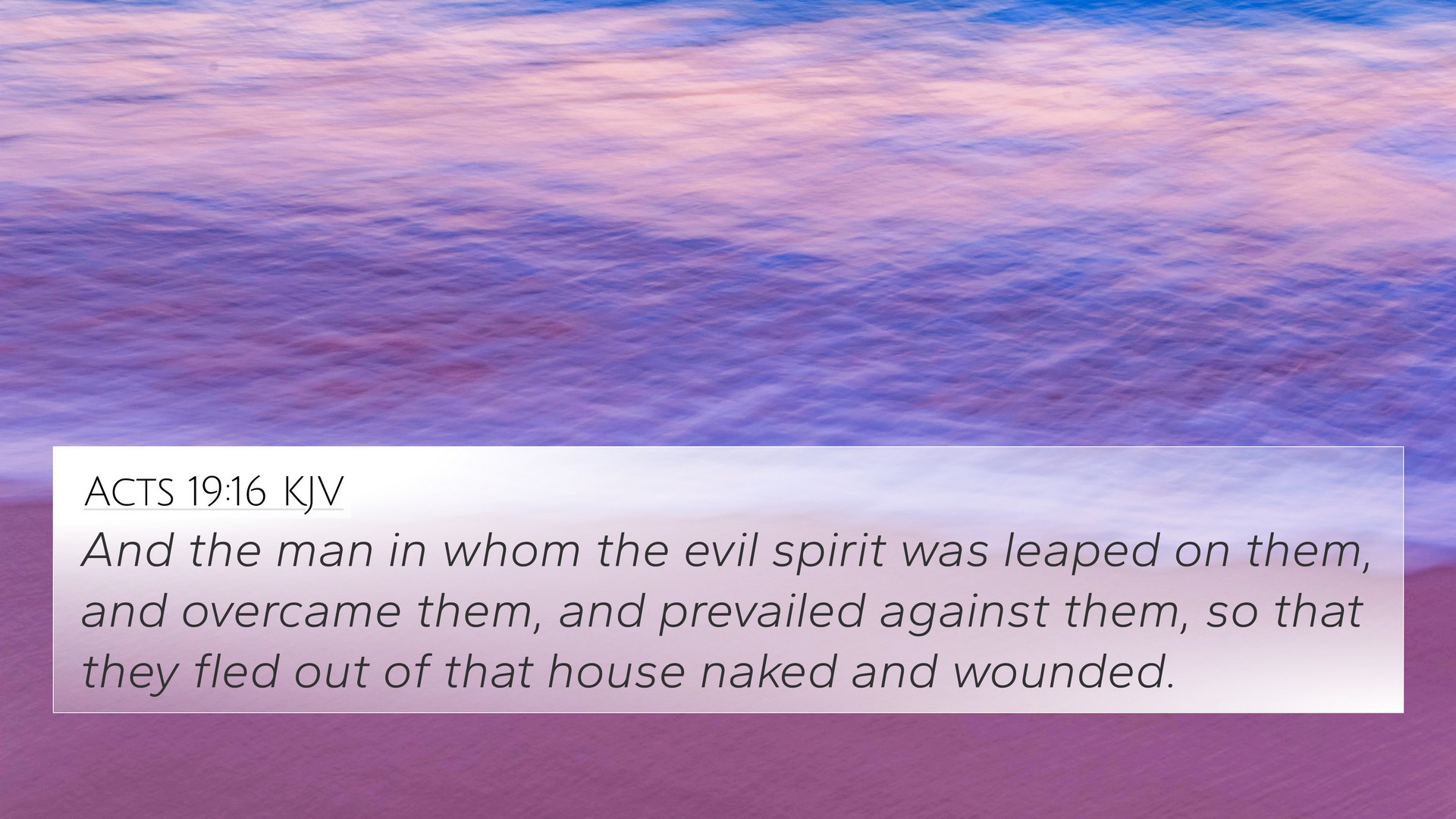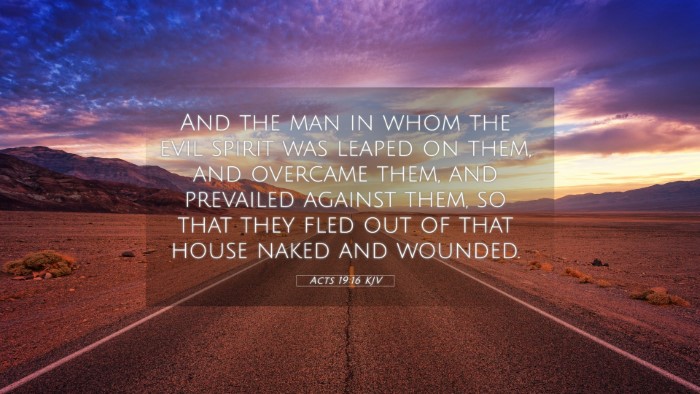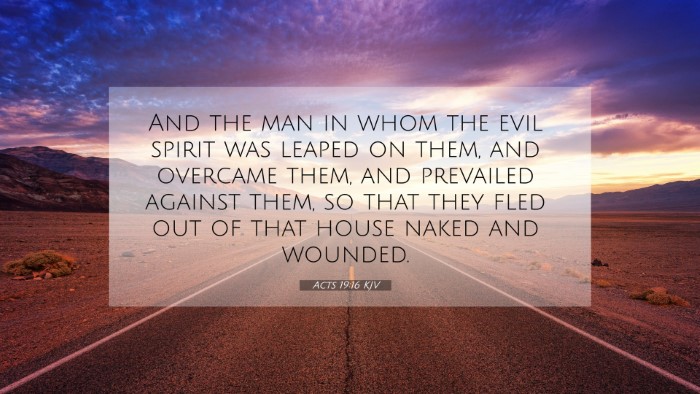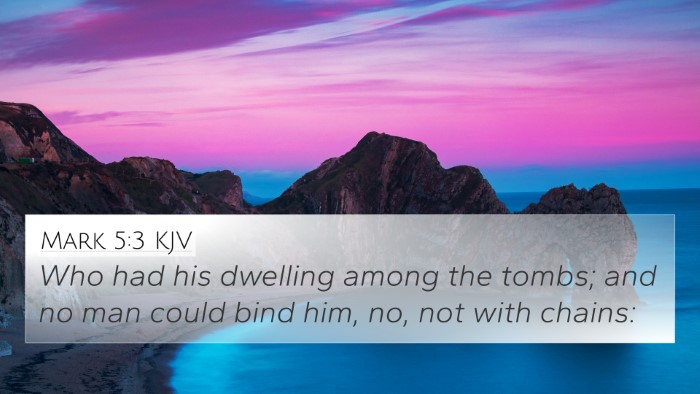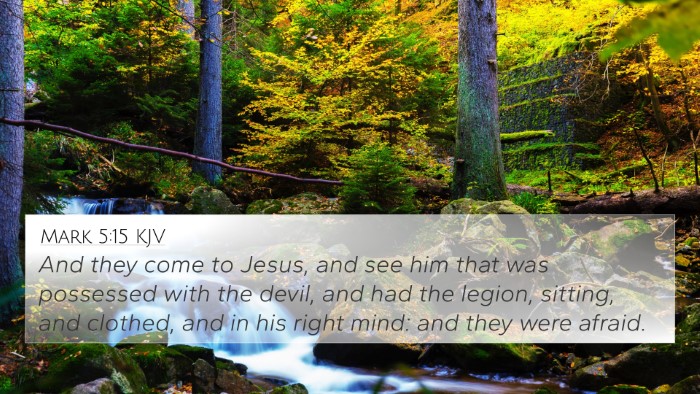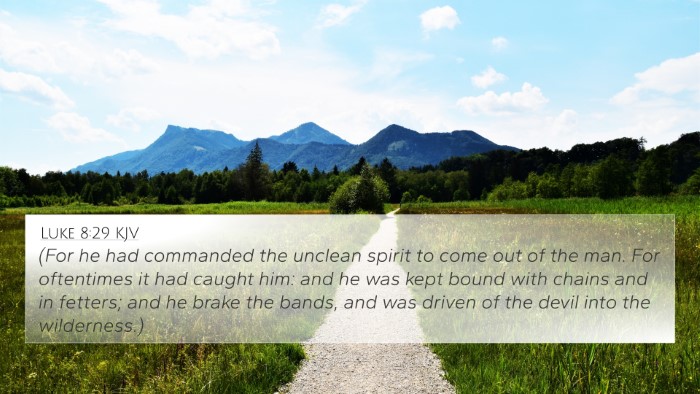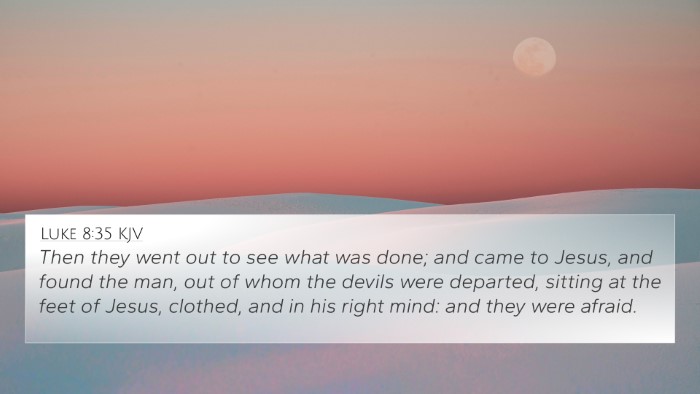Understanding Acts 19:16
Acts 19:16 states: "And the man in whom the evil spirit was leaped on them, and overcame them, and prevailed against them, so that they fled out of that house naked and wounded." This verse captures a dramatic encounter between the sons of Sceva and an evil spirit in Ephesus.
Summary of Acts 19:16
This incident highlights the authority of Jesus' name and the power of spiritual forces. The sons of Sceva attempted to invoke the name of Jesus without true belief or authority, leading to disastrous consequences.
Insights from Public Domain Commentaries
Matthew Henry's Commentary
Matthew Henry explains that the sons of Sceva, wanting to gain notoriety and power, sought to exorcise demons using the name of Jesus without true faith in Him. Their failure illustrates that authority in spiritual matters cannot be claimed without personal relationship and reverence for Jesus Christ.
Albert Barnes' Notes
Albert Barnes notes the futility of their actions, emphasizing the principle that simply invoking Jesus' name, devoid of genuine faith and understanding, leads to defeat. He suggests that it reflects a wider theme of false prophets or exorcists trying to manipulate divine authority for personal gain.
Adam Clarke's Commentary
Adam Clarke points out that the encounter with the evil spirit illustrates the true power that lies behind Jesus’ name. Clarke remarks on how this incident provided a wake-up call to those in Ephesus regarding the reality of spiritual warfare and the necessity of divine authority in such encounters.
Thematic Connections
Acts 19:16 can be cross-referenced with several other passages that explore the themes of spiritual authority, the nature of evil, and divine intervention. Below are notable cross-reference verses:
- Luke 10:17-20 - Reflects on the authority of Jesus given to the disciples over demons.
- Matthew 7:22-23 - Discusses those who claim to know Jesus but are ultimately rejected.
- Mark 16:17 - Jesus promises that believers will cast out demons in His name.
- 1 John 4:4 - Emphasizes that believers are stronger than spirits because of God’s spirit within them.
- James 2:19 - Speaks to the belief of demons in God but without saving faith.
- Acts 16:18 - Another account of Paul casting out a spirit, affirming the authority in Jesus' name.
- Ephesians 6:12 - Explains the nature of spiritual warfare against principalities and powers.
- 2 Corinthians 10:4-5 - Highlights the weapons of warfare that Christians use, which are not carnal.
- Matthew 12:27 - Questions how Jesus casts out demons if He is in league with them.
- Acts 8:7 - Describes Philip casting out spirits in Samaria.
Connections Between Bible Verses
This verse initiates a series of thematic Bible verse connections that explore not only the acts and power of spiritual beings but the proper use of Christ’s name and authority. The failures of the sons of Sceva serve as a warning in comparison to the successful ministries of the apostles, reinforcing the significance of genuine faith in the exercise of spiritual authority.
Comparative Bible Verse Analysis
The events surrounding Acts 19:16 can be examined alongside similar cases of exorcism and spiritual authority throughout both Testaments. For example:
- Comparison of the effectiveness of Jesus' miraculous works with that of others who did not truly believe, as seen in Mark 9:38-40.
- Paul’s ministry contrasts with the sons of Sceva, emphasizing authentic encounter with Jesus in Acts 19:11-12.
- Examining the response of the Ephesians to Paul’s authority and the failure of the seven sons of Sceva provides insights into Ephesians 1:18-21.
The Importance of Divine Authority
In summary, Acts 19:16 encapsulates the necessity of divine authority when engaging in spiritual matters. The sons of Sceva's attempt to use Jesus' name without genuine faith serves as a stark reminder of the repercussions that can arise from misunderstanding the nature of spiritual power.
Conclusion
In conclusion, Acts 19:16 not only serves as a captivating narrative within the book of Acts but also holds valuable lessons regarding spiritual authority, faith, and the importance of a personal relationship with Christ. Its connections to various verses in the Bible enhance our understanding of the broader themes at work in scripture.
